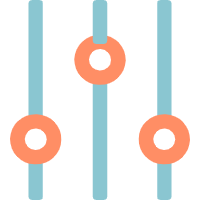Autosomic dominant polycystic kidney disease and metformin: Old knowledge and new insights on retarding progression of chronic kidney disease
 【Abstract】
Autosomal dominant polycystic kidney disease (ADPKD) is the most common congenital kidney disorder, generally caused by mutations in the PKD1 and PKD2 genes, coding for polycystins 1 and 2. Its pathogenesis is accompanied by alterations of the cAMP, mTOR, MAPK/ERK, and JAK/STAT pathways. ADPKD is clinically characterized by the formation of many growing cysts with kidney enlargement and a progressive damage to the parenchyma, up to its complete loss of function, and the onset of end-stage renal disease (ESRD). The current aim of ADPKD therapy is the inhibition of cyst development and retardation of chronic kidney disease progression. Several drugs have been recently included as potential therapies for ADPKD including metformin, the drug of choice for the treatment of type 2 diabetes mellitus, according to its potential inhibitory effects on cystogenesis. In this review, we summarize preclinical and clinical evidence endorsing or rejecting metformin administration in ADPKD evolution and pathological mechanisms. We explored the biology of APDKD and the role of metformin in slowing down cystogenesis searching PubMed and Clinical Trials to identify relevant data from the database inception to December 2020. From our research analysis, evidence for metformin as emerging cure for ADPKD mainly arise from preclinical studies. In fact, clinical studies are still scanty and stronger evidence is awaited. Its effects are likely mediated by inhibition of the ERK pathway and increase of AMPK levels, which are both linked to ADPKD pathogenesis.
【Abstract】
Autosomal dominant polycystic kidney disease (ADPKD) is the most common congenital kidney disorder, generally caused by mutations in the PKD1 and PKD2 genes, coding for polycystins 1 and 2. Its pathogenesis is accompanied by alterations of the cAMP, mTOR, MAPK/ERK, and JAK/STAT pathways. ADPKD is clinically characterized by the formation of many growing cysts with kidney enlargement and a progressive damage to the parenchyma, up to its complete loss of function, and the onset of end-stage renal disease (ESRD). The current aim of ADPKD therapy is the inhibition of cyst development and retardation of chronic kidney disease progression. Several drugs have been recently included as potential therapies for ADPKD including metformin, the drug of choice for the treatment of type 2 diabetes mellitus, according to its potential inhibitory effects on cystogenesis. In this review, we summarize preclinical and clinical evidence endorsing or rejecting metformin administration in ADPKD evolution and pathological mechanisms. We explored the biology of APDKD and the role of metformin in slowing down cystogenesis searching PubMed and Clinical Trials to identify relevant data from the database inception to December 2020. From our research analysis, evidence for metformin as emerging cure for ADPKD mainly arise from preclinical studies. In fact, clinical studies are still scanty and stronger evidence is awaited. Its effects are likely mediated by inhibition of the ERK pathway and increase of AMPK levels, which are both linked to ADPKD pathogenesis.
 【Author】
Alessandro Casarella, Ramona Nicotera, Maria T. Zicarelli, Alessandra Urso, Pierangela Presta, Francesca Deodato, Davide Bolignano, Giovambattista De Sarro, Michele Andreucci, Emilio Russo, Giuseppe Coppolino
【Author】
Alessandro Casarella, Ramona Nicotera, Maria T. Zicarelli, Alessandra Urso, Pierangela Presta, Francesca Deodato, Davide Bolignano, Giovambattista De Sarro, Michele Andreucci, Emilio Russo, Giuseppe Coppolino
 【Keywords】
chronic renal disease, cystogenesis, metformin, renal cells, renal tubule
【Keywords】
chronic renal disease, cystogenesis, metformin, renal cells, renal tubule  【Journal】
Medicinal Research Reviews(IF:9.8) Time:2021-08-04
【Journal】
Medicinal Research Reviews(IF:9.8) Time:2021-08-04




